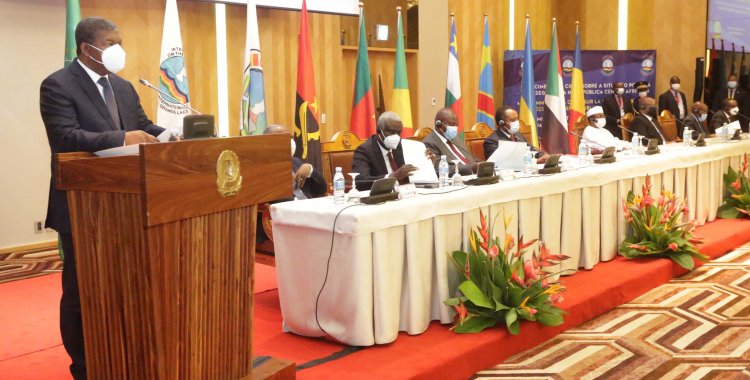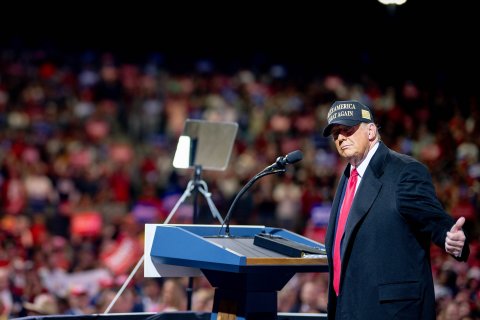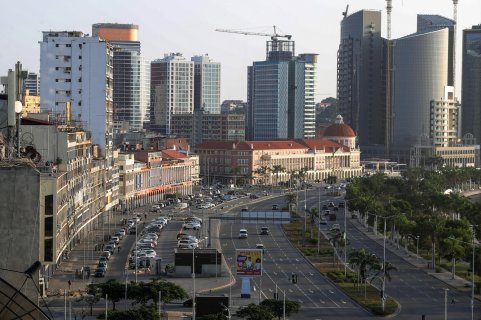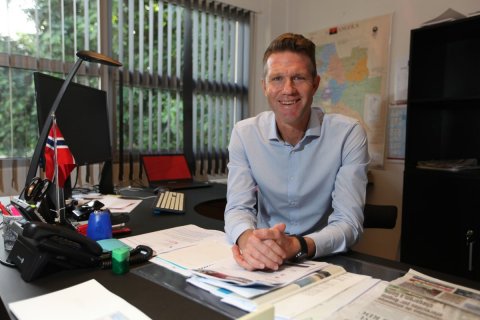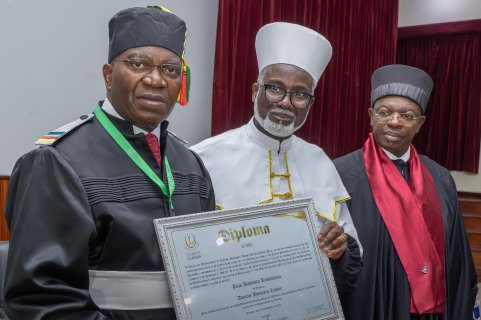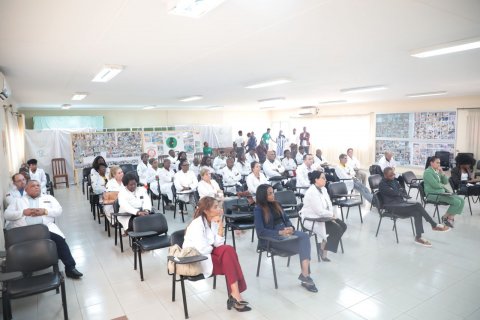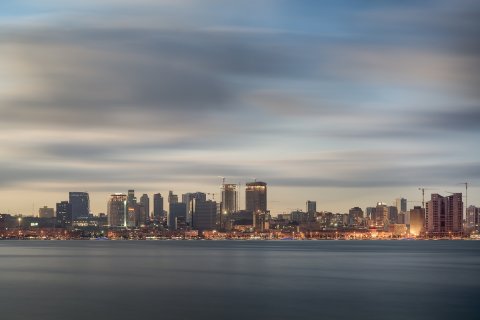João Lourenço, also acting president of the International Conference on the Great Lakes Region (ICGLR), made in Luanda the opening speech of the third mini-summit of the ICGLR on the political and security situation in the Central African Republic (CAR).
The meeting is attended by the Presidents of the Republic of Congo, Sassou Nguesso, and CAR, Faustin-Archange Touadéra, the presidents of the Transitional Military Council of the Republic of Chad, Mahamat Idriss Déby, and the African Union Commission, Moussa Faki Mahamat, and representatives of the heads of state of Cameroon, Sudan, Democratic Republic of Congo (DRCongo) and Rwanda.
The head of state believes that, with the mini-summit, he is moving towards the "conclusion of a cycle of regional démarches" whose results leave hope that a sustainable and lasting solution to the conflict in CAR will be reached soon.
He encouraged President Faustin Archange Touadéra to "continue with the strength of will and commitment that he has shown, assuming and leading this peace process", capitalizing on the negotiation efforts that have been carried out.
"At a time when we are witnessing a resurgence of terrorist actions in the Sahel region, a resurgence of mercenarism, and a change in the constitutional order through coups d'état in West Africa, such as in Mali and more recently in Guinea, the Central African Republic should not miss this opportunity to achieve peace," João Lourenço said.
He added: "Not only through the combined efforts of the national military forces and the United Nations contingent, but also in capitalizing on the advances achieved in the field of negotiation with the internal political forces of the opposition and civil society, as well as with the leaderships of the rebel groups from abroad, through the good offices of Angola, Rwanda and Chad on behalf of the two sub-regions, the ICGLR and ECCAS".
João Lourenço underlined that the roadmap for peace approved in April is an important instrument, which defines the main axes and the set of actions to be implemented in the scope of the pacification process, and that the participation of all the living Central African forces will be indispensable for its success.
He also reported the steps taken with regard to the definitive lifting of the arms embargo of which the CAR is still a victim, highlighting that on June 23, in New York, during the extraordinary meeting of the UN Security Council were "presented the actions taken at the regional level in the context of resolution of the Central African conflict" and made an appeal for solidarity and support from the international community "to join the vision and efforts of the region to achieve a lasting peace in that country".
Concern was also expressed about the arms embargo, insofar as the CAR "is experiencing a different internal political context, characterized by the legitimacy of state institutions," and the Central African authorities are prevented from enjoying the capabilities needed to ensure their own security.
He stressed, on the other hand, that the resolution adopted in the meantime already reflects "a relative easing of the referred embargo".
João Lourenço also called for the summit to add its voice to that of the Economic Community of West African States (ECOWAS), the African Union and the United Nations, for the immediate and unconditional release of Alpha Condé, President of the Republic of Guinea.
At the summit, a report on the implementation of the decisions taken at the 2nd mini-summit in Luanda on April 20, 2021, as well as the Joint Roadmap for Peace in the Central African Republic (Republics of Angola and Rwanda) will be presented.

